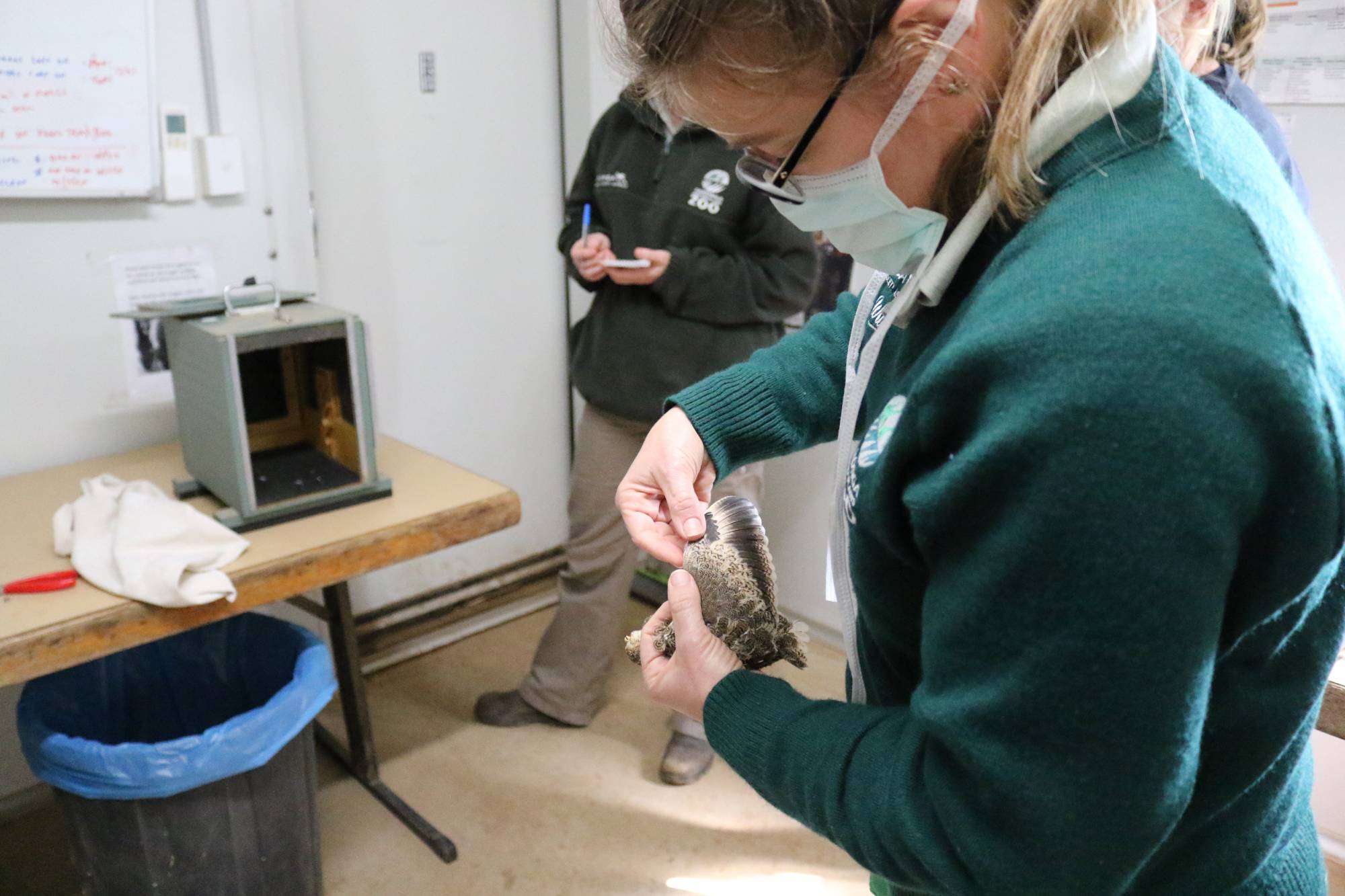Posted on 15th May 2020 by Media Relations
Two rare Plains-wanderer chicks at Taronga Western Plains Zoo, Dubbo received a clean bill of health from the Zoo’s veterinarian at their first health check.
The first health check is a physical examination, an opportunity to weigh, assess body condition, determine if growth is normal and check for any abnormalities or signs of disease, as well as confirm the sex of each bird.
“Both birds are females and were in excellent health and body condition. There were no concerns and both chicks appear to be robust and growing well,” said Veterinarian, Dr Michelle Campbell.
“The chicks received a physical examination which involved looking in their mouth, evaluating their feather development, checking their eyes and vent, listening to their heart, lungs and air sacs with a stethoscope and ensuring the bones and joints of their wings and legs are growing as expected,” said Dr Campbell.
“The chicks weigh 56.6g and 61.5g, we are really happy with these weights and how the chicks have been going to date,” said Plains-wanderer Keeper, Mark O’Riordan.
An adult Plains-wanderer will weigh from 40 – 95g with the female the larger of the two sexes. An average female weighs around 70g so the chicks still have a little more growing to do but at this stage are at a good weight.
“Each chick was also given a leg band with a unique number inscribed on it for identification purposes,” said Keeper Mark.
Environment Minister Matt Kean said he was pleased the rare and critically endangered Plains-wanderer chicks were doing well at Taronga Western Plains Zoo.
“It is thanks to conservation programs like this that we can ensure our future generations are able to experience these rare birds into the future.”
Both females will now enter the routine preventative health program, which involves the provision of optimal husbandry conditions, regular weight and parasite checks and annual health examinations.
“We have separated the chicks from the dad now, which is what would happen in the wild. When the next breeding season commences around spring time, we hope to introduce them to other males at our conservation breeding complex,” said Keeper Mark.
These chicks will hopefully play a key role in the conservation breeding program in the future and contribute to securing a healthy sustainable insurance population for this critically endangered species.
“Everything we do is working towards the end goal of being able to release birds back into the wild to hopefully get them off the critically endangered list,” said Mark.
The Plains-wanderer conservation breeding program is part of the National Recovery Plan, aiming to establish a sustainable population that can support reintroductions to supplement wild populations. The National Recovery Plan sees Taronga Western Plains Zoo in partnership with the Department of Planning, Industry and Environment (DPIE) Saving Our Species program, Taronga Zoo, Zoos Victoria, Zoos South Australia and Featherdale Wildlife Park working together to establish and maintain a healthy genetic population as an insurance against extinction in the wild.
The ongoing management of habitat across the species range is also a critical part of this program. Across the species range, particularly in New South Wales and Victoria, private landowners and managers are working with government and not-for-profit organisations to protect the native grassland habitat of the Plains-wanderer. Collectively, the work being done by all project partners aims to remove this species from the critically endangered list.
The Plains-wanderer breeding conservation program at Taronga Western Plains Zoo is located behind the scenes in the 110-hectare Taronga Sanctuary, dedicated to the conservation of native species. The Plains-wanderer facility includes 30 purpose-built aviaries.
